Student wins first prize in international competition for floating house design
February 16, 2025
A three-person team that includes Mu Qu Jennifer Liu, a master’s student at the Azrieli School of Architecture & Urbanism, has won first prize in an international competition to design a floating house in a sensitive wetland area.
“Knowing that our design stood out among so many talented participants and seeing our hard work recognized on an international stage is truly rewarding, especially given the challenges we faced balancing school, work, and time zones,” says Liu.
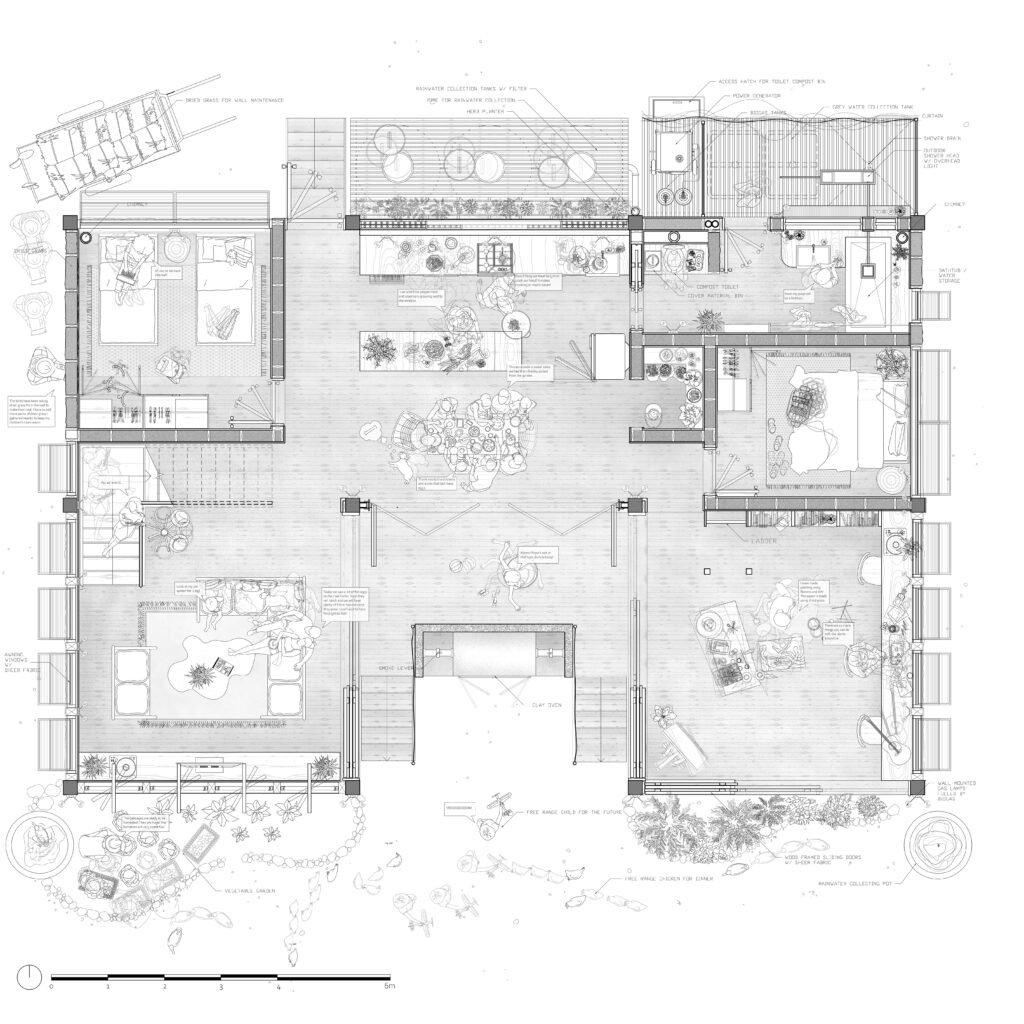
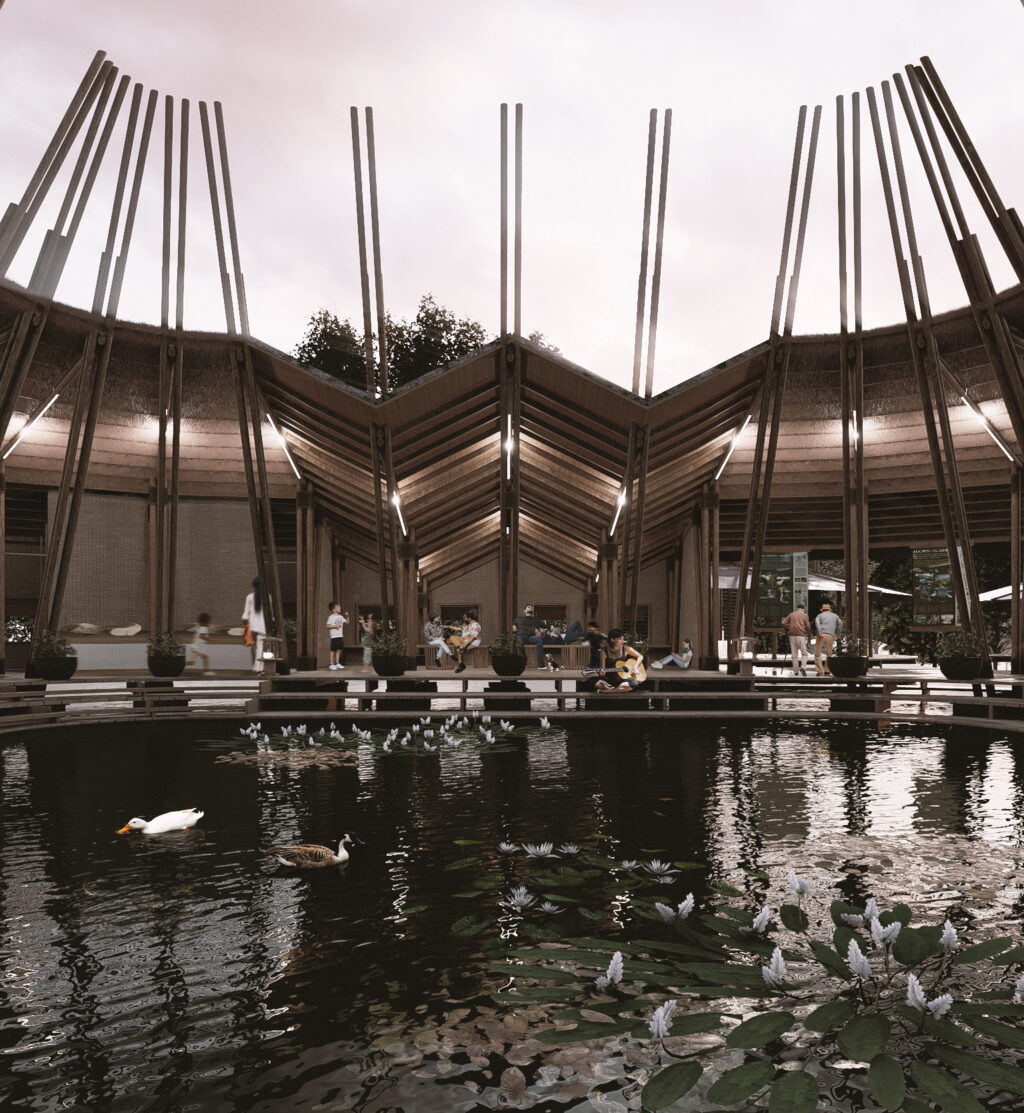
Liu, along with two University of Manitoba students Natalie Cole Bajet and Nikki Elim Ng, took part in the Empordà Eco Village Competition, set in the Empordà wetlands in Spain. The competition, organized by Larsen Architecture, had three components: A Self-Sustaining Eco-Village, Town Hall, and Floating Eco House.
The three friends created designs for each of the three parts. The jury awarded them the first prize for their entry, titled Tempo, for Empordà Domus – Floating Eco House. They will receive a cash prize and certificates.
See all the winning projects here.
“There is no doubt that your team has created a fantastic design,” said the four-member jury, noting the following features:
- The low-rise architecture blends well with the surrounding terrain, ensuring minimal visual impact on the landscape.
- The use of natural and repurposed materials (wood, stone, and local vegetation) supports eco-friendly construction.
- The floating farms and self-sustaining food production contribute to the self-sufficiency criteria.
- The open design and lightweight architecture respect the natural site conditions.
- Integration of wetlands and existing biodiversity into the design suggests careful ecological planning.
- The housing clusters encourage interaction and social cohesion.
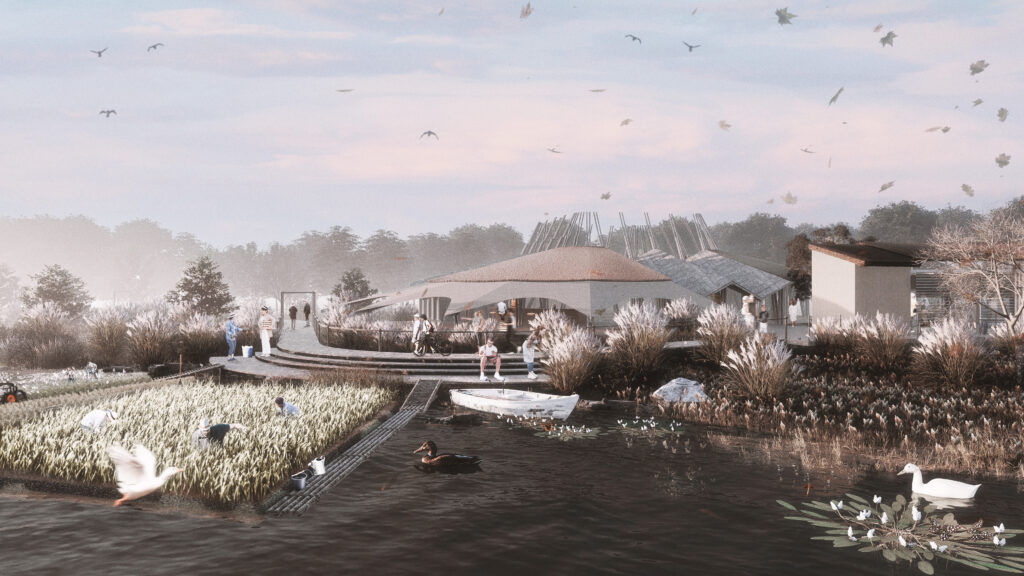
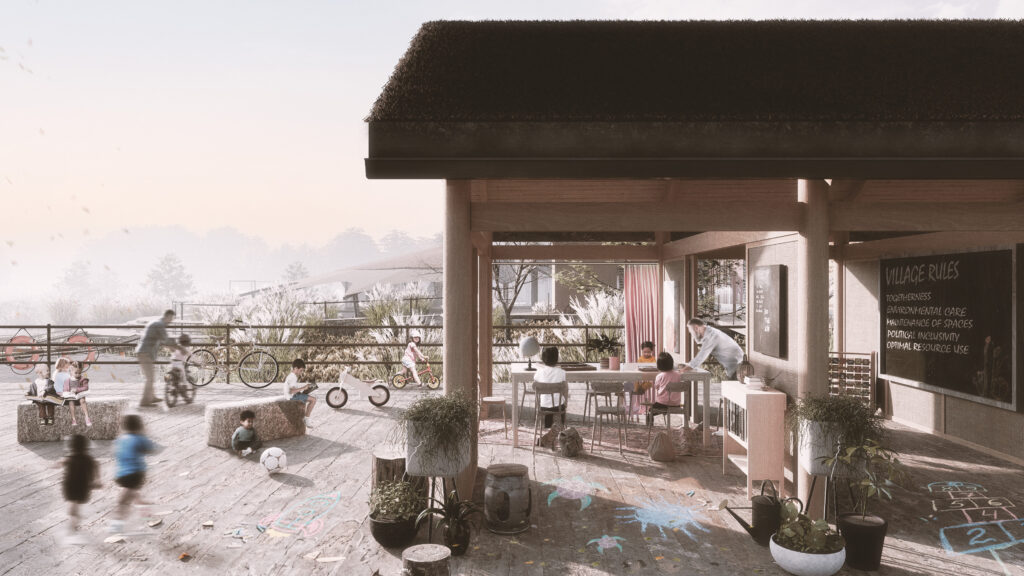
It’s not the first time that Mu Qu Jennifer Liu, Natalie Cole Bajet, and Nikki Elim Ng, former classmates at the University of Manitoba, have successfully competed as a team. In 2023, they won first prize in an international competition to design a retreat centre.
“This competition was a much bigger challenge than our first one in 2023, and it’s amazing to see how much we’ve grown as designers in just a year,” says Liu. “Beyond the prize itself, this experience has strengthened our friendship, reinforced our confidence in our skills, and motivated us to keep striving for excellence in future projects.”
They submitted their project in September 2024, after almost a year of work. “We began research in November 2023 while balancing full-time studies,” says Liu. “By summer, we were producing drawings while all three of us were working full-time at architecture firms.”

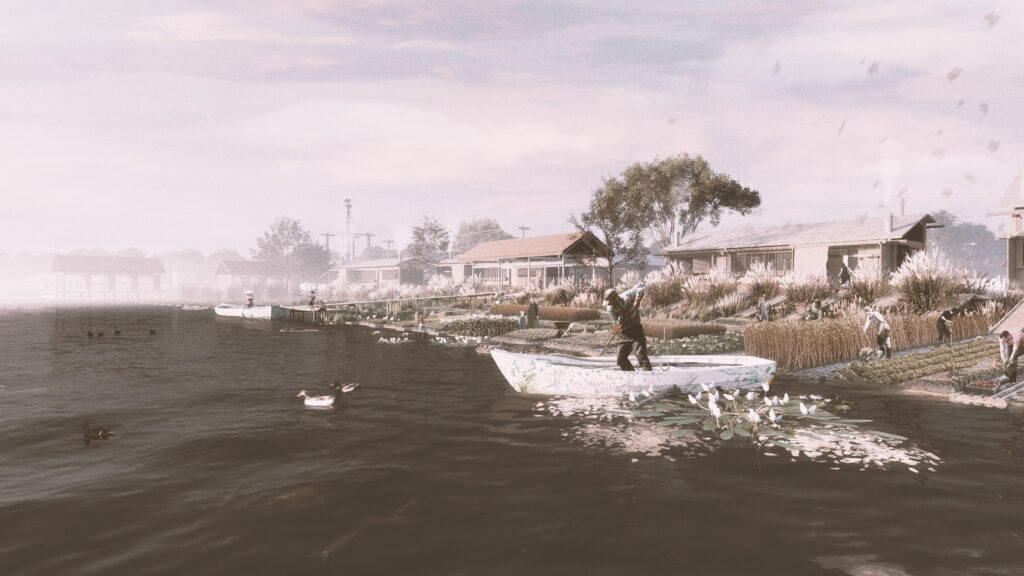
Collaborating across schedules and time zones added to the challenge, with Liu working in Hong Kong last summer.
“I encourage all design students to participate in competitions,” she says. “It’s a great way to refine your skills and build a stronger portfolio. Unlike structured academic assignments, competitions offer greater freedom and flexibility, allowing you to experiment with bold ideas and unconventional design solutions.
“Additionally, winning or even being longlisted can set you apart when applying to schools and jobs,” she adds. “It showcases your initiative, ambition, and ability to compete on an international stage.”

The jury:
Ryan Wenham, Architect and Interior Designer
Isabella D’ipolitti, Architect and UX Designer
Marc Prats, Career Coach
Daniela Pico Perez, Architect and Career Mentor